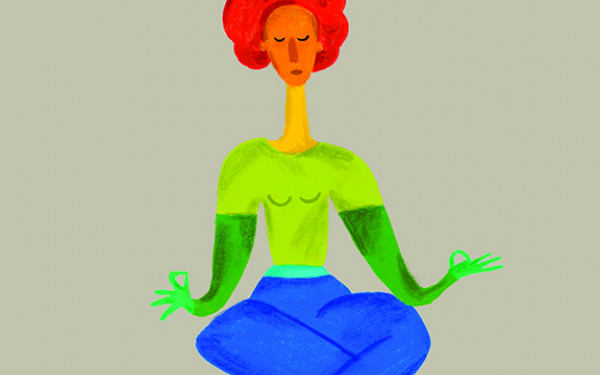The Repression Olympics: The Unattainability of Sexual Purity
How Faith Can Foster Shame Around Sexuality
I’m a camp counsellor at the local Christian camp, comforting an 11-year-old child at 2 a.m. on the gymnasium floor because he confessed to watching porn.
“Am I going to hell for this?” he asks. My job was to lead and inspire the next generation of religious leaders, and their minds were filled with everything but the quest to create goodness in the world.
Imagine thinking you deserve an eternity in hell for being a little curious.
This constant fear of punishment over natural human behaviour is a common theme in religious communities.
Many religious people discuss whether this behaviour is caused by an evil force seeking to corrupt humans or whether it is more or less “pure” to engage in these activities.
What is rarely discussed is how this quest for purity leaves a destructive and sometimes traumatizing mark on its followers.
A religious community can sometimes veer from being an action committee for the advancement of good to being a group of people competing aggressively for the title of most pure—or most repressed.
In some groups, you can often find discussions on how to avoid looking at women, how to avoid thinking about women, how to avoid masturbation, and feeling guilt when horny.
All this precious time could perhaps be better dedicated to solving poverty, homelessness, pain, and suffering. Instead, these goals are supplanted by those of No Nut November, but lasting all the way until marriage.
Many religious leaders boast of their success in slaying the beast of their own sexual temptations. These same leaders are constantly being found to have secret sexual partners, or even a history of being sexually abusive.
Eventually you realize that these leaders, who boast about repressing their sexual desires while binging sexual behaviour in private, are part of a bigger underlying problem.
This problem is then propagated onto their followers, leaving people in an endless cycle of fear, shame, and guilt. This issue is known as sexual anorexia when it results in a lack of romantic and sexual appetite.
Anorexia is not always about food—it can be about anything that you believe makes your body or your existence less pure and less valid. In this context, it’s sex being reserved for marriage, and in some extreme cases, only for procreation.
You might be brought up to believe that arousal, a natural, unstoppable bodily process, like hunger, is a source of shame and suffering. This can hurt the self a lot, and can also hurt the people around you.
You have been saved, now go make the world a better place!
Growing up in the church, you are educated day in and day out about the dangers of sex, and you’re told that marriage is the only path to sexual freedom. This leaves young people rushing themselves into relationships without ever giving a thought to the dimension of sexuality, only to find themselves locked in a marriage that is filled with sexual frustration and confusion.
Sexual shame doesn’t disappear when you get married—it gets worse. When you’re single, sexual shame only has one dimension: You have to avoid sex. When you’re married, this shame begins to infect your partner and your relationship.
You might still believe sex is shameful, and you have no experience navigating the intimacy it requires. You find yourself overwhelmed with the new dimension of sensuality your body is providing you with, and, in a culture of sexual shame, you may find yourself dealing with these experiences alone. You might still fantasize about other people sometimes.
You’re still going to feel horny, but your sexual freedom is now tied to another human being. Even though the supposed guilt-free sex is right in front of you, you may still find yourself avoiding it at all costs.
What’s worse is that sexual anorexia, just like food anorexia, can lead to binging.
This binging can manifest itself in ways that damage you and the people around you. While deprived of sexual satisfaction, you may find yourself taking greater risks to find that pleasure. This can lead to cheating on your dearly beloved spouse, participating in dangerous sexual practices, or developing secretive addictions that eat away at you.
An endless cycle of self-hatred that leads to both self-destruction and destruction of relationships through abusive behavior can ensue.
Religious communities centred on the failures of man lose sight of the primary message of their belief system.
You have been saved, now go make the world a better place!
It’s important for religious communities to ask themselves if self-flagellation is really bringing them purity, or if their saviour already carried that burden for them.
In many ways, religion can be a blessing, but the ongoing theme of sexual deprivation is not making anyone more pure. Shedding light on sex will allow people to be more educated and in control of their decisions. The fear of this natural drive will not save people from darkness.
Besides, why deny this God-given pleasure?
Ending repression could help individuals live their lives more authentically, and in a religiously pure manner.







